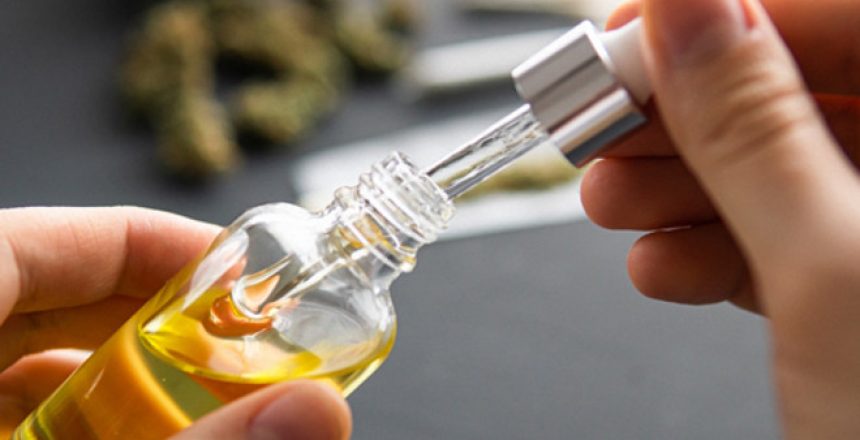When starting out a CBD regime, there is a lot you want to know. You want to know if the cannabinoid will make you fail a drug test and if you will get high with it. Besides, you want to know CBD’s benefits and downsides. This article is your informant, and it strives to answer each of these concerns.
If you are new to CBD, you need to know that it is non-psychoactive and will less likely make you feel high unless it has high THC amounts. Still, there is much you need to know about the cannabinoid, including its pros and cons, and this article sets things clear. Besides, there is much people say about CBD oil, and you may want to know if taking CBD will make you fail a drug test. Peer into this article to get well-researched answers to each of these questions.
The Basics of CBD
First things first, you want to know what CBD is. Many have heard about CBD and may be using its products but a few know what it is. Massi et al. (2006) and Bauer et al. (2020) defined CBD as a non-psychoactive compound in hemp and other cannabis plants. There are many cannabis plants in nature, all of which boast active chemical compounds called cannabinoids. There are many cannabinoids, each having unique properties, and CBD stands out for its non-psychoactive nature. Of course, there are many non-psychoactive cannabinoids, which may leave you wondering why else CBD is popular. According to Watt & Karl (2017), CBD is therapeutic and since many relate to this therapy, the cannabinoid becomes more and more popular.
How to Administer CBD
Are you new to CBD? You need to know how to administer the cannabinoid for the body to benefit from it. There are many CBD forms, which you can administer through;
- Ingestion; you can ingest CBD capsules and edibles. Just CBD store offers high-quality CBD capsules and gummies that you can ingest for CBD benefits.
- Sublingual or oral intake; you can orally or sublingually administer CBD full-spectrum oils and tinctures, and each method ensures the cannabinoid is in your system.
- Topical administration; if you want CBD benefits but not the cannabinoid’s interaction with the bloodstream, you can opt for JustCBD creams and topically apply them for CBD benefits.
- Inhalation; you can vape CBD oils and smoke high-CBD hemp flowers to benefit from CBD. Still, a CDC (2020) report found vaping of all forms dangerous to the lungs and linked to hospitalizations, respiratory challenges, and cancer.
Types of CBD
If you want to take CBD, it is worth noting that there are many types to go for. CBD is an umbrella term that comes in one or more of the following formulations;
- Full-spectrum CBD; features CBD with terpenes, flavonoids, and the whole range of cannabinoids in hemp plants. According to VanDolah et al. (2019), the multiple compounds in full-spectrum CBD give it a full entourage effect.
- Isolate-based CBD; unlike full-spectrum CBD with multiple compounds, isolates have pure CBD, no extra cannabinoids, terpenes, or flavonoids.
- Broad-spectrum CBD; is more like full-spectrum CBD in composition, but does not have THC. It is great for people who want a full entourage effect but have no interaction with the psychoactive THC.
Will CBD Get You High?
What should you expect when taking CBD in any of its delivery methods? Will the cannabinoid get you high? First, you need to know the origin of the high effect before looking at whether CBD will get you high. According to Schlienz et al. (2018), THC is an intoxicating cannabinoid and the source of the high effect of smoking weed. However, CBD does not have THC so it should not make you high. Still, full-spectrum CBD with higher THC composition will make you a little high. Therefore, if you want to avoid the high effect of THC in your CBD regime, focus on high-quality brands like the JustCBD store that accurately label products and provide Lab Reports that inform you of the cannabinoid profile of the product you are taking.
CBD and Drug Tests
The other concern when a person is new to CBD is whether the cannabinoid will make him fail a drug test. Will you test positive for a drug test when taking CBD products? Drug tests look for THC and its metabolites, so if the CBD products you are taking do not have THC, you will not flop a test. Still, it is worth noting that the CBD industry is largely unregulated and many loopholes might make you test positive for drug tests even without taking CBD products. Some products might be wrongly mislabeled as THC-free yet they have THC and taking them might make you fail tests. As if that’s not enough, CBD can disintegrate into THC, again increasing your chances of failing drug tests.
Benefits of CBD
You may want to know CBD benefits before taking the cannabinoid. As stated earlier, Watt & Karl (2017) found CBD therapeutic and many relate to CBD benefits. Hammell et al. (2016) found CBD good for inflammation, and you may want to take it for this. Besides, according to Vučković et al. (2018), CBD might help with pain, another reason why the cannabinoid boasts many fans. Studies like García-Gutiérrez et al. (2020) found CBD good for anxiety, stress, and depression, all the more why CBD has many fans.
Downsides of CBD
The major CBD downside is the lack of studies on the cannabinoid. People see great potential in CBD but there is not enough scientific evidence to back them up. Besides, the lack of regulation of the CBD industry is another downside; many brands claim to produce quality products but do not live up to these claims. Besides, Bass & Linz (2020) reported CBD toxicity in CBD gummies, showing that too much CBD may not go well with the body.
Conclusion
When taking CBD, you look forward to some therapy. Early studies find the cannabinoid great for inflammation, pain, and stress, among many other benefits, but more studies are needed to prove the claims right. CBD should not make you high or increase your chances of failing drug tests, but more studies are needed to prove this. This article explains all you need to know when starting the CBD regime.
References
Bass, J., & Linz, D. R. (2020). A case of toxicity from cannabidiol gummy ingestion. Cureus, 12(4).
Bauer, B. A. (2020). What Are The Benefits Of CBD–And Is It Safe To Use?. In Mayo Clinic.
Centers for Disease Control and Prevention. (2020). Outbreak of lung injury associated with the use of e-cigarette, or vaping, products.
García-Gutiérrez, M. S., Navarrete, F., Gasparyan, A., Austrich-Olivares, A., Sala, F., & Manzanares, J. (2020). Cannabidiol: a potential new alternative for the treatment of anxiety, depression, and psychotic disorders. Biomolecules, 10(11), 1575.
Hammell, D. C., Zhang, L. P., Ma, F., Abshire, S. M., McIlwrath, S. L., Stinchcomb, A. L., & Westlund, K. N. (2016). Transdermal cannabidiol reduces inflammation and pain-related behaviors in a rat model of arthritis. European journal of pain (London, England), 20(6), 936–948.
Massi, P., Vaccani, A., Bianchessi, S., Costa, B., Macchi, P., & Parolaro, D. (2006). The non-psychoactive cannabidiol triggers caspase activation and oxidative stress in human glioma cells. Cellular and Molecular Life Sciences CMLS, 63(17), 2057-2066.
Schlienz, N. J., Lee, D. C., Stitzer, M. L., & Vandrey, R. (2018). The effect of high-dose dronabinol (oral THC) maintenance on cannabis self-administration. Drug and alcohol dependence, 187, 254-260.
VanDolah, H. J., Bauer, B. A., & Mauck, K. F. (2019, September). Clinicians’ guide to cannabidiol and hemp oils. In Mayo Clinic Proceedings (Vol. 94, No. 9, pp. 1840-1851). Elsevier.
Vučković, S., Srebro, D., Vujović, K. S., Vučetić, Č., & Prostran, M. (2018). Cannabinoids and pain: new insights from old molecules. Frontiers in pharmacology, 1259.
Watt, G., & Karl, T. (2017). In vivo evidence for therapeutic properties of cannabidiol (CBD) for Alzheimer’s disease. Frontiers in pharmacology, 8, 20.
Anastasia Filipenko is a health and wellness psychologist, dermatolist and a freelance writer. She frequently covers beauty and skincare, food trends and nutrition, health and fitness and relationships. When she’s not trying out new skincare products, you’ll find her taking a cycling class, doing yoga, reading in the park, or trying a new recipe.
- The Ultimate Pet CBD A Comprehensive Review - July 26, 2023
- Properly Introducing CBD To Pets - January 13, 2023
- Jambo Holiday Gift Guide - January 12, 2023




